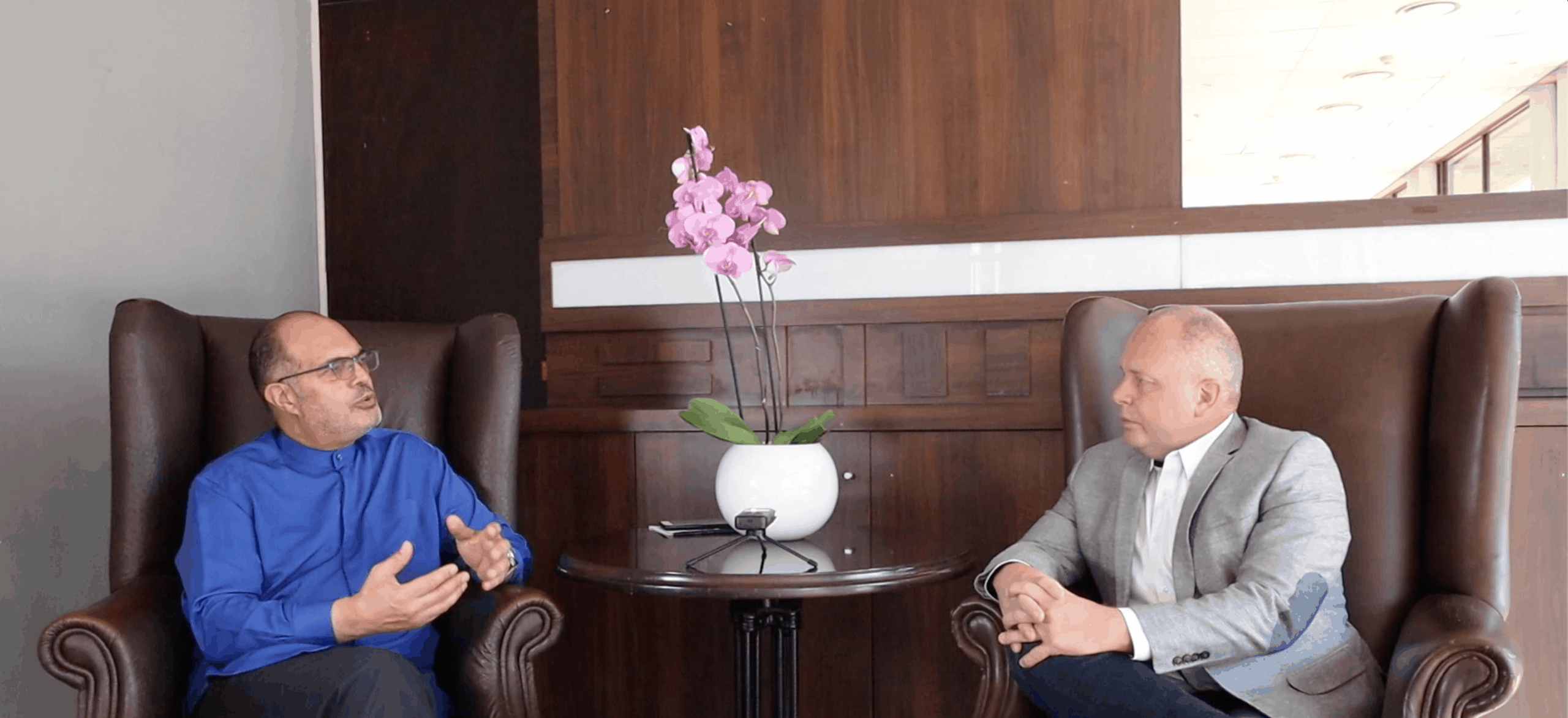I was privileged to speak at the 2019 Africa Employee Engagement Conference and had the opportunity to sit down and discuss leadership with one of South Africa’s most respected public figures, the Commissioner of the South African Revenue Service, the honorable Edward Kieswetter.
As we discussed the various issues of employee engagement, we continued to come back to the topic of leadership. Both of us agreed that although the concept of leading is relatively simple, it is not only the act of being a leader but how you lead that is essential.
Interview Summary
JH: What are your thoughts on leadership in general, and why do you think this is a continuous challenge globally to get it right?
EK: “We have to acknowledge that we are in a leadership crisis not just in South Africa but globally, where we find at a political, civil, and business level, there appears to be a tremendous leadership void. Somehow, we have lost the essence of what it means to lead, which, by the way, is ultimately about serving. And by the word serving, I wish to clarify that it is not about self-serving, but serving others and serving a higher cause.
From a leadership perspective, I believe that leaders must take their work seriously, instead of taking themselves seriously. We need to regard leadership as an inordinate privilege and never approach it with a sense of entitlement. With this leadership deficiency all around us, fully support those who are privileged to lead. It is more about what impact their leadership work will have on others, then what benefits they might derive from it. Because very often it’s those short-term benefits, it’s those pursuits of narrow self-interest that destroys the higher purpose orientation that leadership ought to serve.”
JH: If you could condense this perspective down even more. The sense that I get out of you is that you are a believer in servant leadership. Is that your belief, and how would you best describe it?
EK: I like to call it stewardship because a steward mindset exists in a number of particular ways…
- Firstly, a steward mindset understands that he or she holds in trust that which belongs to another, not the other way around.
- Secondly, a steward mindset is about serving the larger cause, rather than one’s narrow self-interest. Jim Collins would call it having ambition, but not for one’s self, but a purpose. Nelson Mandela and many others demonstrated the power of achieving a servant and steward leadership mindset.
- Thirdly, I believe that even though they understand that what they have the privilege to lead and to have stewardship over, is not their own, but they should care for it as if it is.
- Lastly, steward leadership is the intense desire to give or pass-along more value than you have inherited.
Commissioner Kieswetter nailed it! Not only do we need to recognize that leaders hold a great deal of responsibility to themselves, but also others as well. As a leader, we need to remember the minute you climb the ladder of success; you should turn around and start helping others on that journey also.
Key Leadership Takeaways:
- It is not about self-serving but serving others and a higher cause.
- We need to regard leadership as an inordinate privilege and never approach it with a sense of entitlement.
- Trust.
- Maintain an intense desire to give or pass-along more value then you have inherited.
Leader Action Plan:
- It is all about ACTION. As a leader, you need actually to perform the traits of a steward leader. Be sincere about and genuine, or it will never work.
- Find one person in your sphere of influence and give them empowerment that they would never have had before. Watch the results, and repeat with others as you grow confident in letting go.
What are your thoughts on using the term steward leadership and the perceived deficient of leadership? Post your comments below and let us begin building a tribe of people who have a passion for followership, mentorship, and leading!







